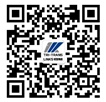AUTONOMOUS cargo aircraft developer Natilus and zero-emission engine developer ZeroAvia have partnered to jointly develop hydrogen-electric engines for the Natilus Kona cargo aircraft, reports London's Air Cargo News.
ZeroAvia's ZA600 will be the sole hydrogen-electric propulsion source offered for the Kona short-haul feeder UAV, with the aim of enabling zero-emission and cost efficient operations.
Natilus said its Kona aircraft, which has a blended-wing body (BWB) design, offers increased volume for hydrogen storage, to maximize the flight range.
California-based Natilus recently validated the performance of the BWB design with flight testing of a quarter-scale Kona prototype aircraft, following three years of wind-tunnel testing.
ZeroAvia, which has bases in the UK and the US, has now conducted eight test flights of its prototype ZA600, 600kW engine in a 19-seat testbed aircraft.
Aleksey Matyushev, co-founder and chief executive of Natilus, said: "The Natilus-ZeroAvia partnership goes further, bringing the talents and innovations of the two companies together to deliver much needed innovation in the air cargo delivery industry and multiple solutions for our customers."
Val Miftakhov, founder and chief executive of ZeroAvia, said: "Given Natilus' impressive order book and corresponding technology development, working together on integrating the ZA600 as a line-fit engine for Kona can multiply the emissions and costs benefits that are already interesting cargo operators."
Natilus currently has more than US$6.8 billion in order commitments, and 460+ aircraft in pre-orders, from companies including major airlines and integrators: Ameriflight, Volatus Aerospace, Flexport, Astral, Aurora International and Dymond.
In the previous:Incheon Airport Community is world first with IATA certification
The next article:Bahamas government considers outsourcing air freight terminal


